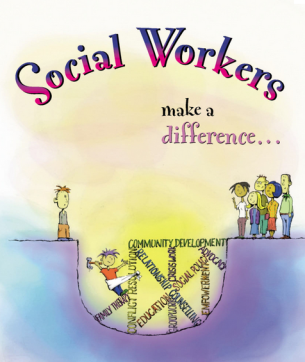U.S. Congress Recognizes World Social Work Day and Professional Social Work Month
Nation’s Social Workers are Honored in March for Outstanding Community Contributions
 There are people in every community who go above and beyond their regular work to make a significant difference in the lives of thousands. These advocates can come from any field, but many times they are professional social workers. In recognition of these efforts, U.S. Representatives Carol Shea-Porter (D-NH) and Brett Guthrie (R-KY) have introduced a resolution into the Congressional Record that celebrates National Professional Social Work Month and World Social Work Day.
There are people in every community who go above and beyond their regular work to make a significant difference in the lives of thousands. These advocates can come from any field, but many times they are professional social workers. In recognition of these efforts, U.S. Representatives Carol Shea-Porter (D-NH) and Brett Guthrie (R-KY) have introduced a resolution into the Congressional Record that celebrates National Professional Social Work Month and World Social Work Day.
World Social Work Day is coordinated by the International Federation of Social Workers (IFSW) and celebrated on March 20, 2012. “Wherever there is extreme poverty, lack of basic needs like food, water and shelter, the trafficking and abuse of people across countries or serious family problems in affluent societies, you will find social workers alongside people, helping them to make changes in their lives,” says IFSW President David N. Jones, PhD. “World Social Work Day gives us an opportunity to celebrate the crucial work of building people-centered, sustainable social progress and social change.”
Use Facebook and Twitter to spread the news about World Social Work Day (#wswday).
In addition, U.S. Representative Edolphus “Ed” Towns (D-NY), U.S. Senator Sheldon Whitehouse (D-RI), and U.S. Representative Patrick Kennedy (D-RI) introduced similar resolutions in celebration of the 50th Anniversary of the Academy of Certified Social Workers (ACSW) and School Social Work Week. These statements from key national legislators help raise awareness that millions of people every day are making changes in their lives, and improving their quality of life, with the assistance of social workers.
The National Association of Social Workers (NASW) has coordinated Professional Social Work Month in March for more than 25 years. The theme for this year’s celebration is “Social Workers Inspire Community Action.” NASW Executive Director Elizabeth J. Clark, PhD, ACSW, MPH says that the 2010 Social Work Month theme and the ACSW 50th Anniversary underscore the association’s focus this year on leadership development. “We have so many inspiring leaders to look to in our profession’s history as we plan for the future. Others may think and talk about problems, but social workers do something to change the systems that perpetuate them,” she says.
The School Social Work Association of America organizes School Social Work Week, and more than 35,000 social work leaders hold NASW’s ACSW credential. Find stories about professional social workers making a difference on these Web sites:
Source: http://www.naswdc.org/pressroom/2010/031710.asp
Source #2: http://ifsw.org/get-involved/world-social-work-day/
Like this:
Like Loading...
 Illinois-licensed social workers must renew their license every 2 years, by November 30th of odd-numbered years. 30 hours of continuing education (CE/CEUs) are required to renew, including:
Illinois-licensed social workers must renew their license every 2 years, by November 30th of odd-numbered years. 30 hours of continuing education (CE/CEUs) are required to renew, including:



![Video2 Using structural MRI to map the functional anatomy of language and reading [electronic resource] / Cathy Price.](http://pdresources.files.wordpress.com/2011/08/video2.jpg?resize=330%2C394)